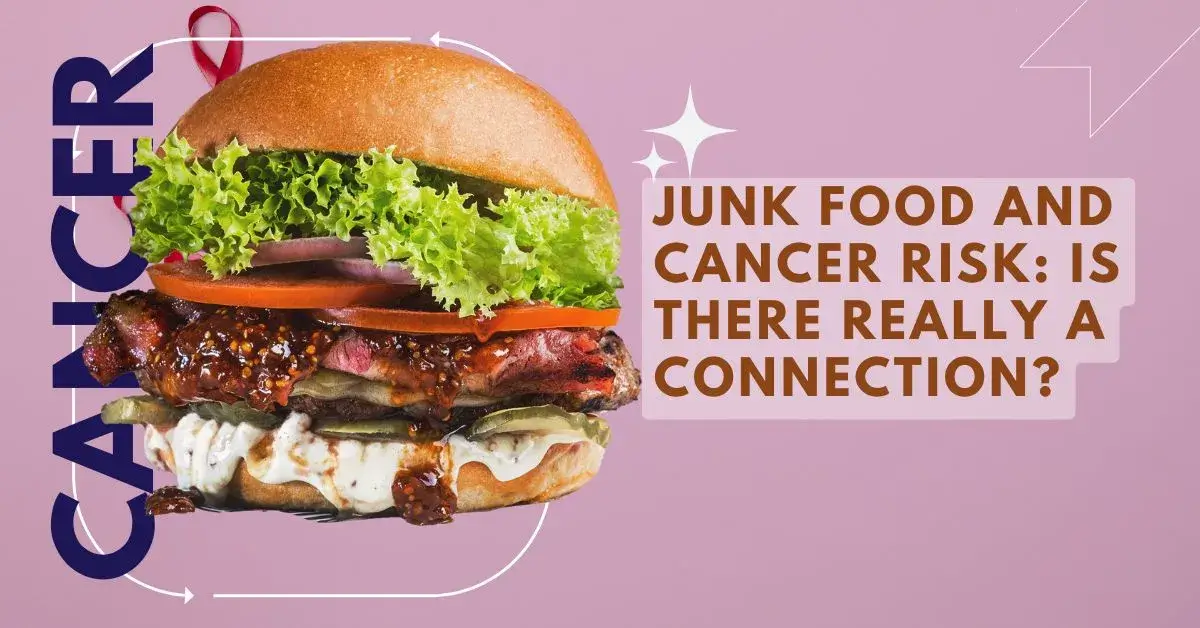
By Dr. Saadvik Raghuram | Medical Oncologist, Hyderabad
When we think of cancer risk factors, smoking and alcohol often come to mind. But in today’s fast-paced world, another silent culprit is increasingly under scrutiny: junk food. Burgers, pizzas, fried snacks, sugary drinks, and ultra-processed packaged foods have become a staple in many diets — but can these really increase the risk of cancer? Let’s explore what research says about junk food and cancer risk and why understanding this link matters to protect your health.
What Exactly is “Junk Food?”
“Junk food” generally refers to ultra-processed foods (UPFs) as classified by the NOVA system. These are foods that are:
- High in refined carbohydrates and sugar
- Loaded with unhealthy fats (trans fats, refined oils)
- Low in fiber, vitamins, and minerals
- Containing additives, preservatives, and artificial flavors and colors
Common examples include packaged chips, fried fast foods, instant noodles, sweetened beverages, and processed meats. These are at the core of the growing concern around junk food and cancer risk.
Scientific Insights on Junk Food and Cancer Risk
- Obesity as a Cancer Bridge
Junk food is calorie-dense but nutrient-poor, contributing heavily to weight gain and obesity. The World Health Organization (WHO) links obesity to at least 13 types of cancer, including breast, colorectal, endometrial, kidney, and pancreatic cancers, making obesity a critical mediator in the relationship between junk food and cancer risk. - Sugar and Cancer Growth
Sugary drinks and desserts cause spikes in insulin and blood sugar, creating conditions favorable to aberrant cell proliferation. Research in journals such as the British Journal of Cancer reports strong associations between high sugar diets and increased pancreatic and colorectal cancer risks. - Processed Meats and Chemical Carcinogens
Processed meats like sausages, salami, and bacon are classified as Group 1 carcinogens by the International Agency for Research on Cancer (IARC), especially linked to colorectal cancer. Additives such as nitrates and nitrites can form harmful nitrosamines, known carcinogens that elevate cancer risk. - Unhealthy Fats Fuel Inflammation
Trans fats and refined oils typical in deep-fried foods trigger chronic inflammation, a recognized driver of cancer development. Chronic inflammation can damage DNA and disrupt normal cell cycles. - Lack of Protective Nutrients and Additive Damage
Unlike whole foods rich in antioxidants and phytochemicals, junk foods lack protective nutrients that help safeguard DNA from damage. Additionally, artificial additives, preservatives, and chemical contaminants found in UPFs may further influence genes associated with cancer, such as BRCA2, through mechanisms being uncovered in recent studies. - Beyond Diagnosis: Continued Cancer Risk
Emerging evidence suggests continued consumption of junk food after a cancer diagnosis may worsen outcomes and increase secondary cancer risks, underlining the importance of dietary care at all stages.
Large-Scale Studies on Junk Food and Cancer Risk
- A landmark 2018 French study (NutriNet-Santé cohort) involving 100,000 participants found that a 10% increase in ultra-processed food intake correlated with a 12% rise in overall cancer risk.
- Meta-analyses published in journals like Nutrients affirm that frequent consumption of fast food and processed meats significantly increases risks of colorectal, breast, and stomach cancers.
Practical Tips to Reduce Junk Food and Cancer Risk
You don’t need to eliminate your favorite snacks completely, but moderation and informed choices are key:
- Limit processed meats and fried fast foods.
- Prefer home-cooked meals using fresh, whole ingredients.
- Swap sugary beverages for water, lemon water, or green tea.
- Increase daily intake of colorful fruits, vegetables, legumes, nuts, and whole grains — natural cancer fighters.
- Maintain a healthy weight and an active lifestyle.
Expert Note from Dr. Saadvik Raghuram
“Cancer prevention isn’t about a single food but the overall pattern of your diet and lifestyle. Excessive junk food consumption increases obesity and deprives your body of essential nutrients and protective compounds that combat cancer risk. Small, consistent dietary changes can have a significant long-term impact.”
If You Have any Doubts about this just Contact Us
Final Word
While occasional indulgence in junk food may seem harmless, regular habitual consumption elevates junk food and cancer risk through obesity, inflammation, carcinogens, and nutrient deficiencies. Building a balanced diet centered on whole foods remains one of the most effective strategies to protect yourself from cancer.
Why More Young Adults Are Developing Colorectal, Pancreatic & Other GI Cancers …
By Dr. Saadvik Raghuram Y – Leading Oncologist in Hyderabad World Cancer …
Why Are So Many Young People Getting Cancer Today? Across the world, …
January is Cervical Cancer Awareness Month in India, and this article explains …
Cancer-Related Fatigue (CRF) is one of the most common—and most underestimated—symptoms experienced …
Every year, Aplastic Anemia Awareness Month shines a spotlight on a rare …

